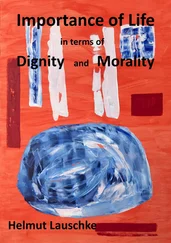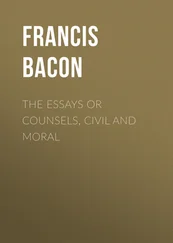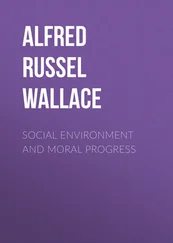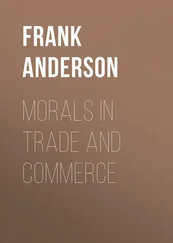Whichever we decide to say, then, we will recognize that [22]the doctrine that coercion excludes moral responsibility is not a particularized version of the principle of alternate possibilities. Situations in [834] which a person who does something cannot do otherwise because he is subject to coercive power are either not instances of coercion at all, or they are situations in which the person may still be morally responsible for what he does if it is not because of the coercion that he does it. When we excuse a person who has been coerced, we do not excuse him because he was unable to do otherwise. Even though a person is subject to a coercive force that precludes his performing any action but one, he may nonetheless bear full moral responsibility for performing that action.
To the extent that the principle of alternate possibilities derives its plausibility from association with the doctrine that coercion excludes moral responsibility, a clear understanding of the latter diminishes the appeal of the former. Indeed the case of Jones 3may appear to do more than illuminate the relationship between the two doctrines. It may well seem to provide a decisive counterexample to the principle of alternate possibilities and thus to show that this principle is false. For the irresistibility of the threat to which Jones 3is subjected might well be taken to mean that he cannot but [24]perform the action he performs. And yet the threat, since Jones 3performs the action without regard to it, does not reduce his moral responsibility for what he does.
The following objection will doubtless be raised against the suggestion that the case of Jones 3is a counterexample to the principle of alternate possibilities. There is perhaps a sense in which Jones 3cannot do otherwise than perform the action he performs, since he is a reasonable man and the threat he encounters is sufficient to move any reasonable man. But it is not this sense that is germane to the principle of alternate possibilities. His knowledge that he stands to suffer an intolerably harsh penalty does not mean that Jones 3, strictly speaking, cannot perform any action but the one he does perform. After all it is still open to him, and this is crucial, to defy the threat if he wishes to do so and to accept the penalty his action would bring down upon him. In the sense in which the principle of alternate possibilities employs the concept of “could have done otherwise,” Jones 3’s inability to resist the threat does not mean that he cannot do otherwise than perform the action he performs. Hence the case of Jones 3does not constitute an instance contrary to the principle.
I do not propose to consider in what sense the concept of “could have done otherwise” figures in the principle of alternate possibilities, nor will I attempt to measure the force [26]of the objection I have [835] just described.1 For I believe that whatever force this objection may be thought to have can be deflected by altering the example in the following way.2 Suppose someone – Black, let us say – wants Jones 4to perform a certain action. Black is prepared to go to considerable lengths to get his way, but he prefers to avoid showing his hand unnecessarily. So he waits until Jones 4is about to make up his mind what to do, and he does nothing unless it is clear to him (Black is an excellent judge of such things) that Jones 4is going to decide to do something other than what he wants him to do. If it does become clear that Jones 4is going to decide to do something else, Black takes effective steps to ensure that Jones 4decides to do, and that he does do, what he wants him to do.3 Whatever Jones 4’s [28]initial preferences and inclinations, then, Black will have his way.
What steps will Black take, if he believes he must take steps, in order to ensure that Jones 4decides and acts as he wishes? Anyone with a theory concerning what “could have done otherwise” means may answer this question for himself by describing whatever measures he would regard as sufficient to guarantee that, in the relevant sense, Jones 4cannot do otherwise. Let Black pronounce a terrible threat, and in this way both force Jones 4to perform the desired action and prevent him from performing a forbidden one. Let Black give Jones 4a potion, or put him under hypnosis, and in some such way as these generate in Jones 4an irresistible inner compulsion to perform the act Black wants per[30]formed and to avoid others. Or let Black manipulate the minute processes of Jones 4’s brain and nervous system in some more direct way, so that causal forces running [836] in and out of his synapses and along the poor man’s nerves determine that he chooses to act and that he does act in the one way and not in any other. Given any conditions under which it will be maintained that Jones 4cannot do otherwise, in other words, let Black bring it about that those conditions prevail. The structure of the example is flexible enough, I think, to find a way around any charge of irrelevance by accommodating the doctrine on which the charge is based.4
Now suppose that Black never has to show his hand because Jones 4, for reasons of his own, decides to perform and does perform the very action Black wants him to perform. In that case, it seems clear, Jones 4will bear precisely the same moral responsibility for what he does as he would have borne if Black had not been ready to take steps to ensure that he do it. It would be quite unreasonable to excuse Jones 4for his action, or to withhold the praise to which it [32]would normally entitle him, on the basis of the fact that he could not have done otherwise. This fact played no role at all in leading him to act as he did. He would have acted the same even if it had not been a fact. Indeed, everything happened just as it would have happened without Black’s presence in the situation and without his readiness to intrude into it.
In this example there are sufficient conditions for Jones 4’s performing the action in question. What action he performs is not up to him. Of course it is in a way up to him whether he acts on his own or as a result of Black’s intervention. That depends upon what action he himself is inclined to perform. But whether he finally acts on his own or as a result of Black’s intervention, he performs the same action. He has no alternative but to do what Black wants him to do. If he does it on his own, however, his moral responsibility for doing it is not affected by the fact that Black was lurking in the background with sinister intent, since this intent never comes into play.
The fact that a person could not have avoided doing something is a sufficient condition of his having done it. But, as some of my examples show, this fact may play no role [34]whatever in the explanation of why he did it. It may not figure at all among the circumstances [837] that actually brought it about that he did what he did, so that his action is to be accounted for on another basis entirely. Even though the person was unable to do otherwise, that is to say, it may not be the case that he acted as he did because he could not have done otherwise. Now if someone had no alternative to performing a certain action but did not perform it because he was unable to do otherwise, then he would have performed exactly the same action even if he could have done otherwise. The circumstances that made it impossible for him to do otherwise could have been subtracted from the situation without affecting what happened or why it happened in any way. Whatever it was that actually led the person to do what he did, or that made him do it, would have led him to do it or made him do it even if it had been possible for him to do something else instead.
Thus it would have made no difference, so far as concerns his action or how he came to perform it, if the circumstances that made it impossible for him to avoid performing it had not prevailed. The fact that he could not have done otherwise clearly provides no basis for supposing that he might have done otherwise if he had been able to do so. When a fact is in this way irrelevant to the problem of accounting for a person’s action it seems quite gra[36]tuitous to assign it any weight in the assessment of his moral responsibility. Why should the fact be considered in reaching a moral judgment concerning the person when it does not help in any way to understand either what made him act as he did or what, in other circumstances, he might have done?
Читать дальше












